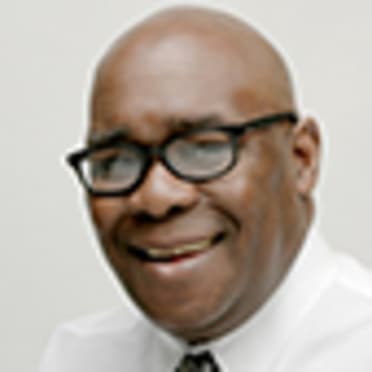'MLB Pride' panelists share experiences
It’s Pride Month, and Major League Baseball has implemented several initiatives to recognize the work to achieve equal justice and opportunity for the LGBTQ+ community.
Several members of the community who work in baseball had a lot to say about their experiences during “MLB Pride,” a panel discussion that was part of MLB’s Diversity, Equity & Inclusion Program. The entire conversation lasted an hour and can be seen on MLB.com.
The panel included Greg Bader, the Orioles' senior vice president of administration & experience; Roscoe Mapps, the Giants' vice president of external affairs; Nona Lee, the D-backs' executive vice president & chief legal officer; former umpire Dale Scott; and Erik Braverman, the Dodgers' senior vice president of marketing communications & broadcasting. The conversation was moderated by Billy Bean, vice president and special assistant to Commissioner Rob Manfred.
Scott was a professional umpire for 37 years. In 2014, he was the first active male sports official to come out publicly to say that he was gay.
“I’m very proud of that, and the response that I had from that was very uplifting and overwhelming,” Scott said.
Lee revealed challenges she faces being an African American, a woman and part of the LGBTQ+ community. She also praised the D-backs for giving her every opportunity to be successful.
“When you are a member of unrepresented groups, there are challenges that we face, especially in what has been historically a predominantly white, male-dominated industry,” Lee said. “I won’t say the challenges were horrible or difficult. It has been engrained throughout the culture. It’s just been challenging to navigate that over the years, especially the early years, and make my way to -- and through -- a culture that is very different from the world in which I came.
“That being said, although it was a journey, I did have a lot of support from sponsors and allies within the organization. I have seen tremendous change over the years, especially from the aspect of legal practitioners in Major League Baseball. We are a close-knit group. I’ve been really happy to see change there.”
Bader grew up an Orioles fan and received a dream of a lifetime by working for his hometown team since the early 1990s, when he was an intern. Bader came out after he was invited to the wedding of then-Orioles PR director Monica Barlow, who invited Bader and his partner in 2008.
“She wanted to extend that invitation and did. I’m glad she did. I accepted,” Bader said. “Because of her role as PR director, there were members of the media there, certainly a lot of members in the organization. It was an impetus to come out to my co-workers and to the media.
“Certainly, my family and friends knew, but this was an opportunity to be myself. Thankfully, the organization always presented itself in a way to make me feel like doing so without putting my job at risk and I would be welcomed. That turned out to be the case.”
Braverman is in his 13th season with the Dodgers and worked many years with ESPN. When he came out, he received support from many co-workers with the Dodgers. Initially, Braverman was hesitant to discuss his personal life. But then he talked to Lon Rosen, who directs the Dodgers organization's marketing, sales and broadcasting department. Rosen offered his support to Braverman and simply wanted to know his plans in the industry.
“[Rosen] made a strong case to me that it was beyond me. My coming out wasn’t really about me,” Braverman said. “It was about the example that you set for other people … in our community -- who might be younger and might be looking at this and saying, ‘This is an industry that I want to pursue, but I don’t think I can.’”
Braverman got support from people from all over -- and not just exclusively from the LGBTQ+ community. The support came from everywhere.
“If I had to do it again, I would do it every single time,” Braverman said.
Mapps was open about his sexuality from the very beginning, starting with his job interview with the Giants. He was hired a couple of weeks later, and has accomplished a lot in his six years with the organization.
“I felt the click right away. I listen to everyone else’s coming-out story. I was out. … because it's a part of my resume and the work I’ve done the last 10-plus years or so,” Mapps said.
Under Mapps’ leadership, the Giants became the first team to wear pride colors on their jerseys and caps to emphasize the importance of uplifting people of color and the transgender community in the LGBTQ+ community. The Giants also were the first team to have a member of the transgender community to sing the national anthem.
